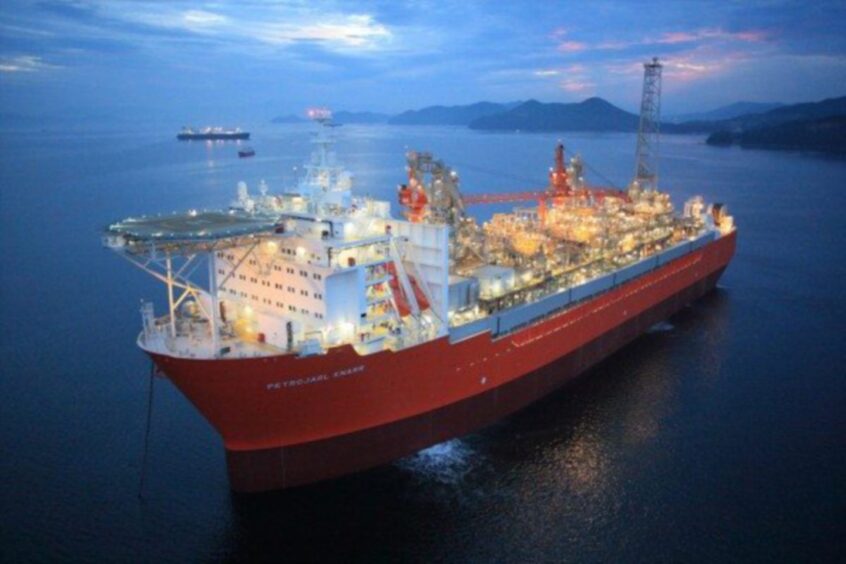
Rosebank remains unchanged despite UK fiscal instability, however, future investment worth up to £10 billion may be impacted, said an Equinor boss.
Philippe François Mathieu, vice president for exploration and production international for the Norwegian state-backed firm, told Energy Voice how the UK is stacking up when compared to other geographies that fall under his remit.
He said that the firm has seen more stability in “all of the jurisdictions where we operate” in recent years.
The Equinor boss explained that the “intention” of his firm is to “invest some £10 billion” across oil and gas and renewables in the UK. Two thirds of the planned spending will go towards energy transition technologies, such as wind, carbon capture and storage (CCS), hydrogen and “potentially” combined-cycle gas turbines (CCTG).
Mathieu described this plan as a “massive investment” but warned that uncertainty within the UK’s fiscal regime will “weaken the investment risk appetite that companies like Equinor have”.
He explained that Equinor’s strategy involves the continued production of oil and gas to “secure the financing that we need” for renewables projects.
He said: “These are long-term investments and for all of these investments we need to have visibility.
“We need to have stability of the framework that we are going to be operating against. There have been some changes in the fiscal regime that we’ve seen in the UK, particularly when it comes to oil and gas.
“We’re still in a situation where we will know what the terms are and the new fiscal regime that will apply to oil and gas once the new Labour Government has concluded on the topic.”
Number 10’s revolving door
The Equinor boss spoke to Energy Voice at the Offshore North Seas (ONS) conference in Stavanger. Since the last ONS in 2022, the UK has had four prime ministers and a change in the ruling political party.
This, alongside Labour’s changes to the energy profits levy (EPL), or windfall tax, which has closed investment incentives and will potentially shut down capital allowances as well, has made other geographies more appealing.
Mathieu commented: “We have seen quite frequent changes in the fiscal regime in the UK and we have seen, to be to be to be frank, much more stability in all of the jurisdictions where we operate so that is a reality.”
Rosebank economics hinges on EPL rulings
Last year Equinor secured the licence for the highly controversial Rosebank oil field, the UK’s largest remaining untapped discovery.
Recently, the UK Government said it would not challenge the judicial reviews brought against development consent for the Jackdaw and Rosebank offshore oil and gas fields in the North Sea.
Both projects have been subject to legal challenges against the decision to approve their development.
This move was made as new environmental guidance for oil and gas firms was set to come into play.
The government said that the guidance is necessary in light of the Supreme Court ruling on the Finch development. This requires regulators to consider the impact of burning oil and gas, scope 3 emissions, in the Environmental Impact Assessment for new projects.
However, the UK Government added that litigation does not mean the licences for Shell’s Jackdaw and Equinor’s Rosebank have been withdrawn.
To this, an Equinor spokesperson shared: “We’re currently assessing the implications of today’s announcement and will maintain close collaboration with all relevant stakeholders to advance the project.”
Energy Voice spoke to Mathieu before the government’s recent statement.
Rosebank is important for ‘job creation and value creation to the UK’
On the future of Rosebank, Mathieu said: “Rosebank is we think still important with or without the changes in the in EPL in terms of security of supply for the UK, for Europe.
“This is a project which is still important when it comes to job creation and value creation to the UK.”
He said that “the EPL is not changing the context” for how Equinor proceeds with the Rosebank project. However, he did concede that changes, particularly to capital allowances, will have an impact “on the economy of the project.”
He added: “But more importantly, it’s going to also have an impact on how we and other companies are going to be looking at doing new investments or making further investments into the UK oil and gas sector.”
Recommended for you



 © Supplied by Teekay
© Supplied by Teekay